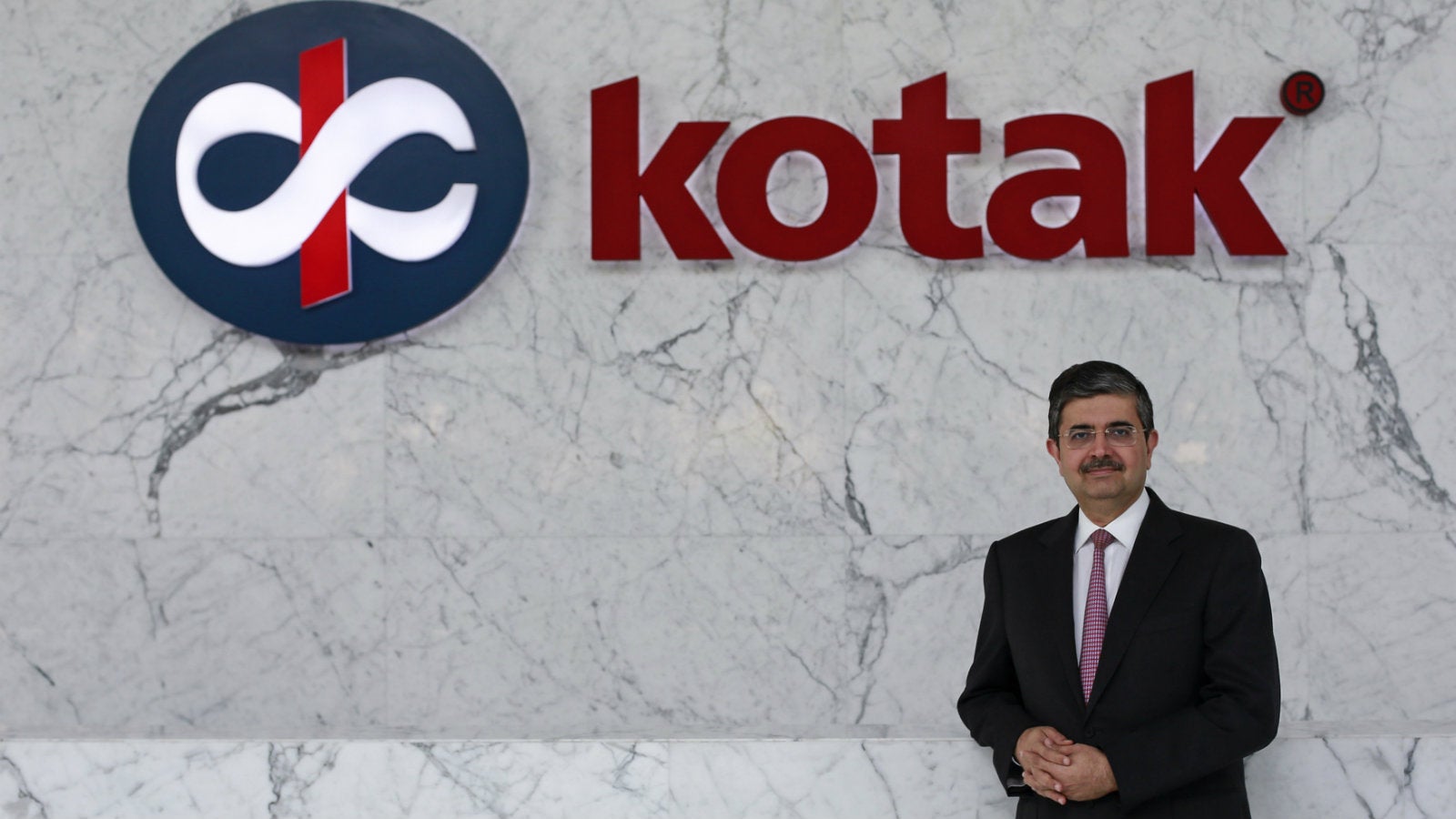Why Asia’s richest banker is dragging India’s central bank to court
A dispute between Kotak Mahindra Bank (KMB), India’s fourth largest lender by assets, and the country’s banking regulator has reached the courts.


A dispute between Kotak Mahindra Bank (KMB), India’s fourth largest lender by assets, and the country’s banking regulator has reached the courts.
The Reserve Bank of India (RBI) had earlier restricted Uday Kotak, the private bank’s billionaire founder, from reducing his holding using preference shares. On Dec. 10, the bank informed the stock exchanges that it has filed a writ petition in the Bombay high court against this.
Preference shares are not counted as part of the core equity shares typically used to dilute promoters’ stakes.
The RBI had made it mandatory for private bankers, including Kotak, to reduce their shareholding to 20% from the current 29.73% by Dec. 31, 2018, and 15% by March 31, 2020. The rationale behind the regulator’s move is to diversify shareholdings in a bank and also to reduce promoter control.
The RBI order had not specified the word “equity,” which has now led to the conflict. This is what the bank said in its statement to the stock exchanges:
We have since clarified and conveyed to the RBI our position in relation to PNCPS (perpetual non convertible preference shares) being a part of paid up capital and the legal basis on the matter of dilution of shareholding under the Banking Regulation Act. We have also shared with the RBI the opinions of eminent jurists and senior most legal counsels of the country, which confirm our understanding.
However, we have not heard from the RBI on the above matter. Given the milestone of Dec. 31, 2018, the bank has been left with no option but to protect its interest. By way of abundant caution, the bank has today filed a writ petition with the hon’ble Bombay high court to validate the Bank’s position.”
Some analysts view it as an unprecedented move, which can cost Kotak dearly. Others deem it a smart step.
“There was ambiguity in certain rules and terms when (the banking) licence was granted to Kotak. Now, that the matter is in court Kotak will get more time,” said Asutosh Kumar Mishra, head of research at domestic brokerage house Ashika Stock Broking. “They can easily get one to two years till the matter is sub-judice and once they find a good investor, they can offload the stake easily.”
However, investors were not enthused by the move and the bank’s stock shed over 6% to trade at around Rs1,205 on BSE at 1:45 pm on Monday.